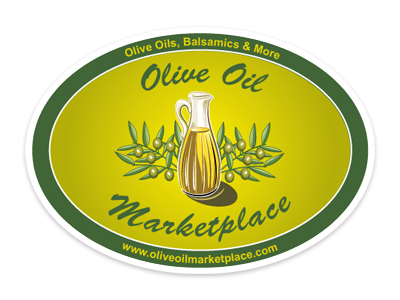The Technical Reason:
Extra Virgin Olive oil is an important source of antioxidants. The most important are polyphenols, antioxidants, and tocopherols (vitamin E). There are as many as 5.5 mg of polyphenols antioxidant in every tablespoon of olive oil (15 ml) and 1.6 mg of Vitamin E per tablespoon of olive oil. Total proximate of antioxidants: 7 mg in every 15 ml of olive oil. The US Food and Drug Administration’s (FDA) Recommended Daily Allowance (RDA) of antioxidents (vitamins, minerals, polyphenols, etc.) for a 25-year old male for Antioxidants is 120 mg/day. That means that extra virgin olive oil could be 12 % of the daily source of antioxidants in your diet if you just use two tablespoon of EVOO in your salads. And it could be almost 30 % if you drizzled it over fish/meat or roast vegetables or used it for bread dipping.
Why it’s important to consume antioxidants? Because they are associated with several healthful effects in humans:
- ATHEROSCLEROSIS. Oxidized low-density lipoproteins (LDL) contribute to the progression of human atherosclerosis. Antioxidants have been shown to prevent LDL modification caused by oxidation. The beneficial effects of a Mediterranean-type diet may be defined by the unique antioxidant properties of its phenolic compounds.
- ANTIMICROBIAL ACTIVITY. Olive polyphenols have been demonstrated to inhibit or delay the rate of growth bacteria such as Salmonella, Cholera, Staphylococcus, Pseudomonas, and Influenza in vitro. These data suggest a potential role of olive polyphenol antioxidants in promoting intestinal and respiratory human and animal wellness, and as an antimicrobial food additive in pest management programs.
- HEART DISEASE. Researchers are fairly certain that oxidative modification of LDL-cholesterol (sometimes called “bad” cholesterol) promotes blockages in coronary arteries that may lead to atherosclerosis and possible heart attacks. Vitamin E may help prevent or delay coronary heart disease by limiting the oxidation of LDL-cholesterol. Research suggests that olive oil helps reduce inflammation throughout the human body.
- CANCER. Recent studies have shown that the abundant phenolic antioxidant properties of olive oil have a potent effect on reactive oxygen species associated with colon and breast pathologies. Some polyphenol antioxidants, such as resveratrol, inhibit occurrence and/or growth of mammalian tumors.
- SKIN DAMAGE AND PHOTOPROTECTION. The skin damage produced by overexposure to sunrays and environmental stress is related to the destructive activity of free oxygen related radicals produced by skin cells. Polyphenolic components of olive oil have been compared to traditional antioxidants used by the cosmetic and pharmaceutical industry to prevent skin damage. Results show polyphenols as having the highest activity as radical scavengers A variety of other beneficial health effects have been attributed to consumption of foods rich in polyphenolic antioxidants. Among these effects discussed are anti-aging consequences such as slowing the process of skin wrinkling.
Aren’t we lucky to have something that tastes so good also contributing to our health? The father of modern medicine noted its importance to good health and recommended “a spoonful a day” to aid in digestion — a suggestion still offered today.
The Simple Reason:
Olive Oil is good for you because it:
- Tastes Good
- Is an excellent source of monounsaturated dietary fat
- Contains potent antioxidants
- Improves your LDL blood serum component
- Adds natural luster to hair
- Strengthens fingernails
- Adds oil to dry skin
- Aids in digestion and regularity
- High vitamin A, D, K and E content
- Stimulates bone growth and absorption of calcium
That spicy, peppery feeling you get at the end of your tasting is a direct indicator of fresh cold-pressed olive oil, which comes from capsaicin. Capsaicin is a chemical known for its anti-inflammatory benefits, especially in rheumatoid arthritis and cardiovascular health.

Leave A Comment